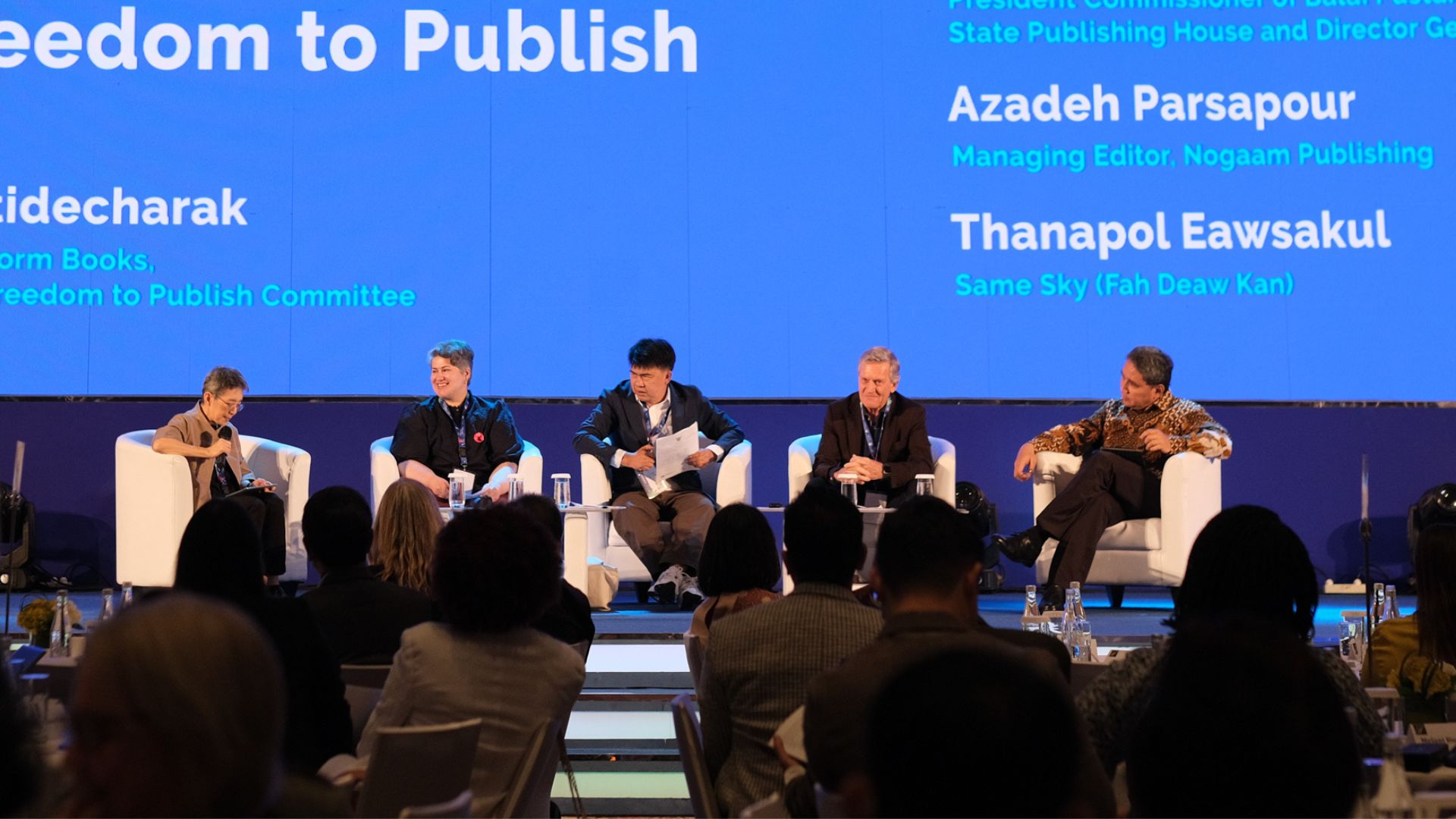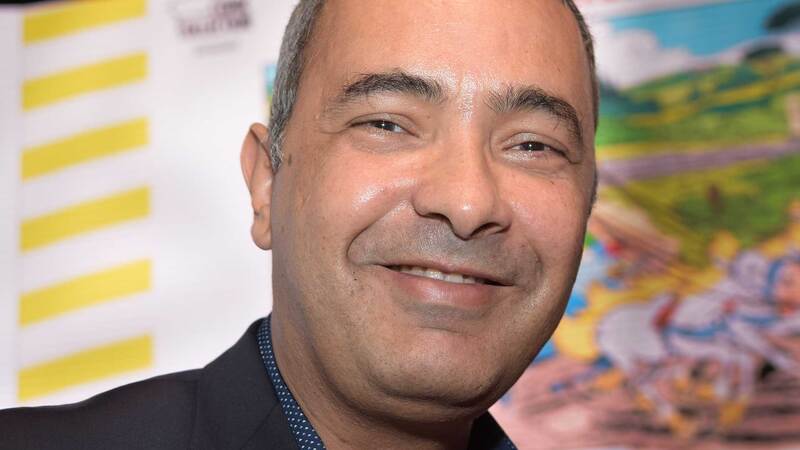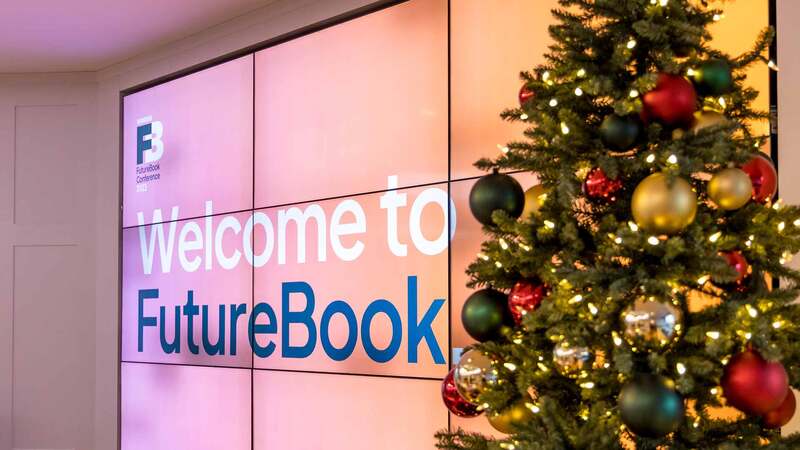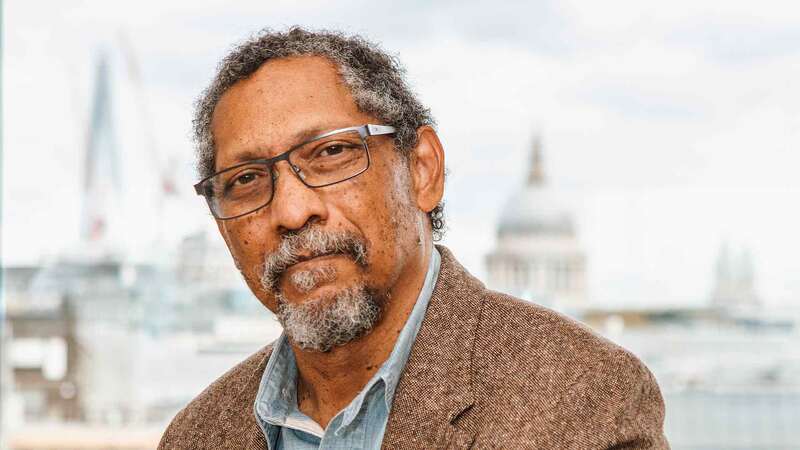You are viewing your 1 free article this month. Login to read more articles.
Iran’s uprising explored at IPA Congress
To create and maintain free societies, publishers must be allowed to challenge the boundaries of the society they operate in, the 33rd International Publishers Association Congress heard in Jakarta, Indonesia, on 10th November, in a discussion that examined both the potential of social media to shut down public debate, and conversely its use to combat the restrictions of authoritarian states.
Speaking at a panel titled “Liberty or Surveillance: How Technology Affects the Freedom to Publish”, Azadeh Parsapour, managing editor of Nogaam Publishing, explained that digital technologies had enabled her publishing house – which from the UK brings out books which could not be published inside her homeland of Iran – to exist.
“One of the freedoms Iran has been denied for decades is the freedom to read books the way the author writes them,” she said. In Iran, every book must get a permit to be published, and the lucky ones receive a permit after a process of censorship, while others “are deemed unpublishable and sometimes blacklisted.” Every book Nogaam publishes also has a free e-book so that the title can be read inside Iran and neighbouring Afghanistan, and Nogaam’s main channel of communication is social media. “My work would be impossible without it,” Parsapour told the Congress.
The publisher founded the Tehran Book Fair Uncensored, a parallel event to the actual fair in the Iranian capital, and first held it in London in 2016, involving Persian publishers throughout the world. With the pandemic, the fair was held virtually in 2020, and “for the first time Iranian readers inside the country could share,” Parsapour said. “But access to the internet and social media is not easy inside Iran – my site was blocked. And in the past weeks [during the unprecedented wave of anti-regime protests], Iran has had another round of internet shutdown. All international platforms have been blocked and thousands have been arrested because of what they have published online.”
Urging that “digital rights are human rights”, she called for the development of new legislation on digital rights to protect freedom of expression.
Restrictions within Thailand, where criticism of the monarchy is forbidden by stringent lèse-majesté laws, were also explored by Thanapol Eawsakui of Prix Voltaire-winning Thai publisher Same Sky, together with panel chair Trasvind Jittidecharak, publisher at Thailand’s Silkworm Books.
But Kristenn Einarsson, chair of the IPA Freedom to Publish Committee, warned that social media had been a central part of the development seen over the past decade of “fewer democracies, more autocracies”. With social media the most important channel to influence large groups of people, especially the young, without editing or corrections, this unbroken flow had enabled figures including former US president Donald Trump to “create confusion between various ‘versions’ of truth”, he said; meanwhile social media was also “a perfect means to shut people down by public shaming”, and authorities could use shutdowns of the internet to silence criticism being aired. “To create and maintain free societies, publishers must be allowed to publish all, even and especially if it challenges the boundaries of the society they operate in.”
Hilmar Farid, president commissioner of Balai Pustaka State Publishing House and Director General of Culture for Indonesia, said that because of the social media landscape, “before, we talked of the unchecked power of governments, now we talk about the unchecked power of corporations that own the media landscape. The debate is whether Donald Trump can return to Twitter or not, and everyone is waiting to see what Elon Musk will decide.” Farid said some kind of moderation of free speech was necessary to prevent hate speech, or the polarising of society. “How do you walk that thin line?” he asked. “How do we do that? Who defines it? Part of being a democratic society is to open up the process and allow lots of people to take part.” The process must always be “ongoing”, he said.
Einarsson added: “For the governments, if you want freedom of expression, it’s a balance between freedom and stopping hate speech. I had hoped the people who buy the tech companies [would not be] just innovators and rich people, but publishers. The internet has been here for 20 years; they should understand the responsibility. Publishers should give them crash courses. We need to tell tech companies that they can’t say they are just connecting and not responsible for the content.”
There have been over 600 registrations from more than 60 countries at this year’s Congress, which has been made free to enter by the Jakarta regional government to encourage participants despite the uncertainties brought about by Covid.
Also discussed on the first day was the impact of AI, future-proofing children’s books, and the publishing industry’s path towards net zero. Two awards were given: the inaugural IPA Champion award went to the association’s former vice-president Asoke Ghosh of India, while the Innovation in Publishing Award went to Brazil’s Camara Brasileria do Livro for its Bookstore Connection project, a pandemic-originated initiaitve connecting indie bookshops with wholesalers and a technology platform to facilitate book delivery to customers within hours instead of days.




















